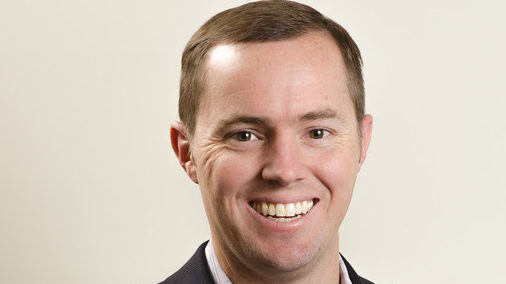Ramsay Huntley

Ramsay Huntley, BS Business Management, 2001
Degrees earned: North Carolina State University: BS, Business Management, Poole College of Management, 2011 and Tufts University: MA, Urban and Environmental Policy and Planning, 2004
Organization: AT&T
Title: Senior Sustainability Manager

Tell us about your current job duties, and how you’re working to integrate sustainability into your role.
I am a senior manager on the sustainability team for AT&T. In this role, I focus on our sustainability reporting and strategy. AT&T reports to a wide variety of sustainability initiatives such as CDP and DJSI as well as maintaining our own external reporting (which you can see at www.att.com/csr.
What experiences first made you interested in using your career to drive business sustainability?
I identified early on in my career that in order to tackle big global issues like climate change, business had to be at the table. There’s a role for all sectors of society and I don’t think business is any different. The great thing about working on these issues within a company is that if you can identify a strong business case for these projects, it’s likely to move forward more quickly and in a way that can meet many company goals, not just those related to sustainability.
Give us some examples of how your company uses sustainability to drive innovation, produce results, or improve the way you do business. What do you love the most about your job? What are the challenges you’ve encountered & overcome in your career?
To really engage in sustainability work, you need to be deeply involved in innovation and change management. You get exposed to a lot that’s happening both inside and outside of the company. And typically you are doing something different just about every day so it keeps things interesting.
What’s your advice for students who are interested in sustainability? How can students combine their sustainability interests with their day-to-day duties (even in a job that doesn’t have “sustainability” in the title)?
Even if you don’t have a “sustainability” background look for where your expertise aligns with sustainability needs. If you’re an accountant, learn more about the Sustainability Accounting Standards Board (SASB). If you’re a mechanical engineer, consider ways your work influences energy efficiency and ultimately the emissions associated with wasted energy use. There are lots of areas that touch sustainability that don’t have the job title necessarily.
Feel free to add any observations about your career and/or sustainability that we haven’t covered in these questions.
I find that people that are good sustainability practitioners tend to be generalists and can step pretty easily between different roles as needed. They may not have an accounting degree or a marketing degree, but do have a pretty good working knowledge of those fields and others. The fact is the modern sustainability practitioner in a large company often needs to a bit of a “jack of all trades” transitioning seamlessly, for example, from a meeting with Finance, to developing marketing outreach, to sitting down with facility engineers (often in the same day!). It also helps to pay attention to larger events outside your expertise or company – what’s happening politically or in global markets that could influence how your company may need to react in 18-24 months?
- Categories: